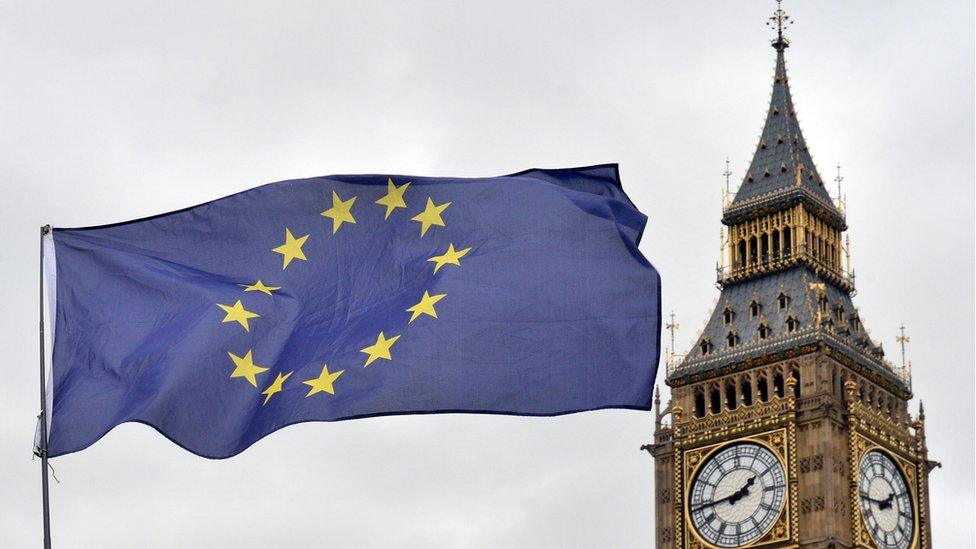Brexit: Cabinet ministers 'voiced doubts over PM's plan at start'
- Published
- comments
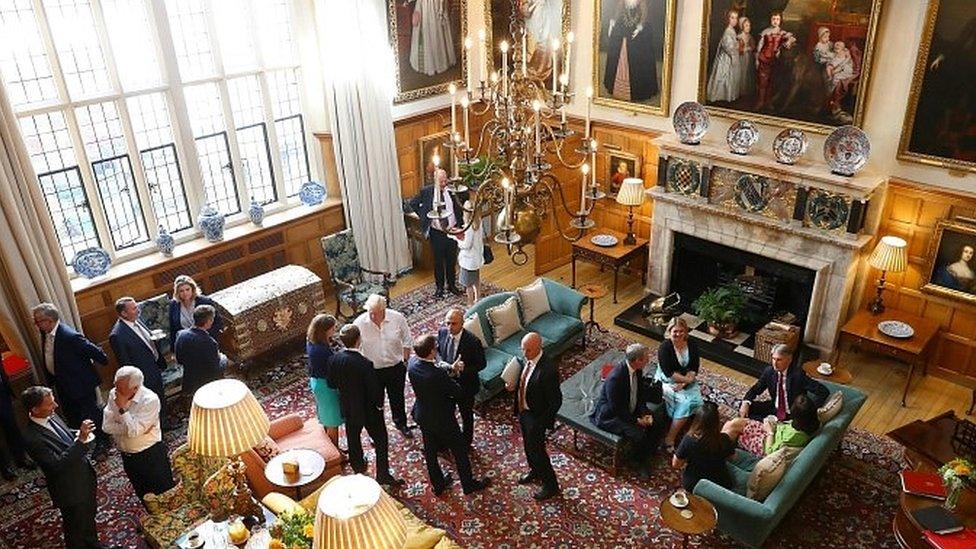
Cabinet ministers in discussion at Chequers in July, when the Brexit plan was agreed
Multiple cabinet ministers expressed significant doubts about the prime minister's preferred Brexit plan from the start, the BBC has learned.
Parts of Theresa May's plan were described as "worrying", "disappointing" and "concerning" by members of her top team back in July.
Mrs May is struggling to broker an agreement on Brexit with ministers.
Two ministers have told the BBC they believe there is little chance the deal would get Parliament's backing.
One of them said it was "self-harming" for the PM to keep pursuing the same strategy.
Mrs May is trying to arrange an agreement in cabinet on the current negotiations in time for a hoped-for summit in Brussels later this month.
Her preferred plan for future relations with the EU after Brexit were agreed at Chequers - the prime minister's country retreat - in July, in a marathon cabinet meeting lasting nearly 12 hours.
Afterwards, Mrs May said the cabinet had reached a "collective" agreement, although former Brexit secretary David Davis and ex-foreign secretary Boris Johnson resigned from the Cabinet in protest at the plans 48 hours later.
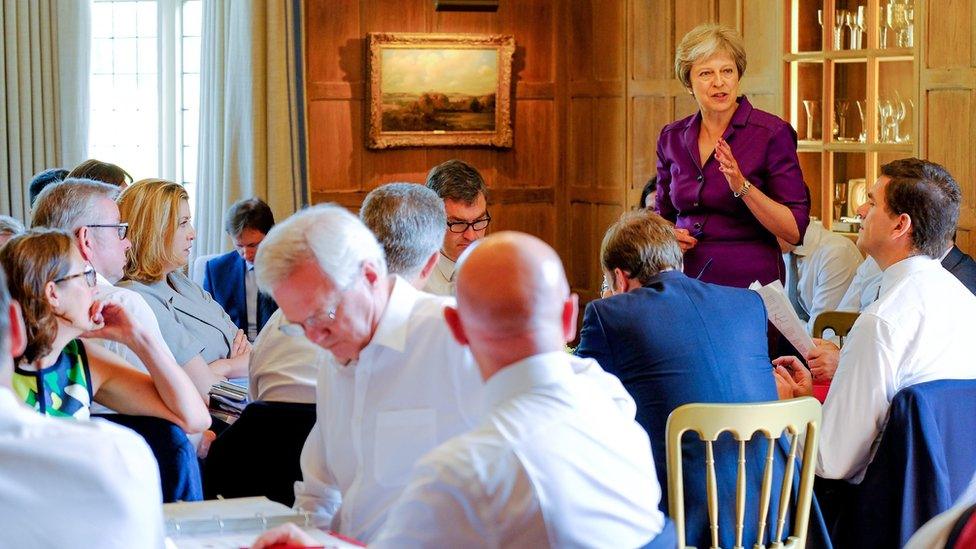
Mrs May speaks during the meeting at Chequers in July
And, according to the BBC's political editor Laura Kuenssberg, cabinet sources have now revealed there were widespread doubts about various aspects from many other ministers from the start, including from some former Remain supporters.
For many of those present, she said that the Chequers deal was an undesirable compromise, rather than a set of proposals to which they were signing up with enthusiasm.
One cabinet minister said the group endorsed the proposal "with a very heavy heart".
There would be "no problem" if the UK asked the EU for a timed extension to the Brexit date Article 50 author Lord Kerr tells Radio 4's World at One
Trade Secretary Liam Fox expressed strong doubts about elements of the plan for trading arrangements as they could harm the ability of the UK to do trade deals after Brexit.
Home Secretary Sajid Javid, who backed Remain, is understood to have had some similar views, describing the proposal for a common rule book with the EU for parts of the economy as "very worrying" and suggesting that there should be a review of the arrangements after five years.
The leader of the House of Lords, Baroness Evans, is understood to have agreed, telling her colleagues that she found it difficult to accept some aspects of the proposals, and might struggle to explain them in Parliament.
Penny Mordaunt and Esther McVey - Brexiteers who have both been reluctant to give public support for the plan - are said to have expressed significant unhappiness and questioned whether Brexiteer MPs would be able to support such a deal in Parliament.
Meanwhile, Transport Secretary Chris Grayling is said to have warned his colleagues that as many as 40 Eurosceptic MPs might "go on strike".
Sources close to him would not confirm that, but said he had been "extremely cautious from the start" about the Chequers proposal.
And as has previously emerged, the leader of the Commons, Andrea Leadsom, said that she "hated" the proposals and called on the prime minister to treat those who had voted for Brexit with respect.
Chancellor Philip Hammond told his colleagues that the government was living on "borrowed time" because some businesses were hesitating over whether to invest in the UK.
He argued for the Chequers approach to bring clarity as soon as possible. But he is understood to have questioned whether such a deal could actually be achieved, warning that the UK would have to persuade EU member states to defy the European Commission which is running the negotiation.
And the Defence Secretary, Gavin Williamson - also a former Remainer - said there were many concerns with the paper and it must be made clear it was as far as the government would be willing to compromise.
Several ministers on both sides of the argument are understood to have called on the prime minister to be honest with the public about the shift in position towards a closer arrangement with the EU.
Mrs May is trying to arrange an agreement in cabinet on the current negotiations in time for a hoped-for summit in Brussels later this month.
A Number 10 spokesman said: "Everyone has to move a little to get a deal that works for everyone on both sides of the argument."
But Shadow Brexit Secretary Sir Keir Starmer said it appeared Mrs May had proceeded without the "solid backing" of her cabinet, having also declined to get Parliament's support for her negotiating objectives.
Sir Keir also said the option of a fresh referendum was still "on the table", despite Labour's leader Jeremy Corbyn saying at the weekend that Brexit could not be stopped.
"All options are on the table" if there is a no deal Brexit, Starmer tells Today
In his column for the Daily Telegraph on Monday, Boris Johnson called the prime minister's deal, external "a recipe for continued strife, both in the Tory Party and the country".
And former cabinet minister John Whittingdale cast doubt on whether Mrs May could stay in office if Parliament rejected any deal she reached with the EU.
"I think if the PM's Brexit plan doesn't get through Parliament, I think it's quite difficult to see how the prime minister can continue because she has staked her credibility," he told BBC Radio 4's Westminster Hour.
- Published6 November 2018
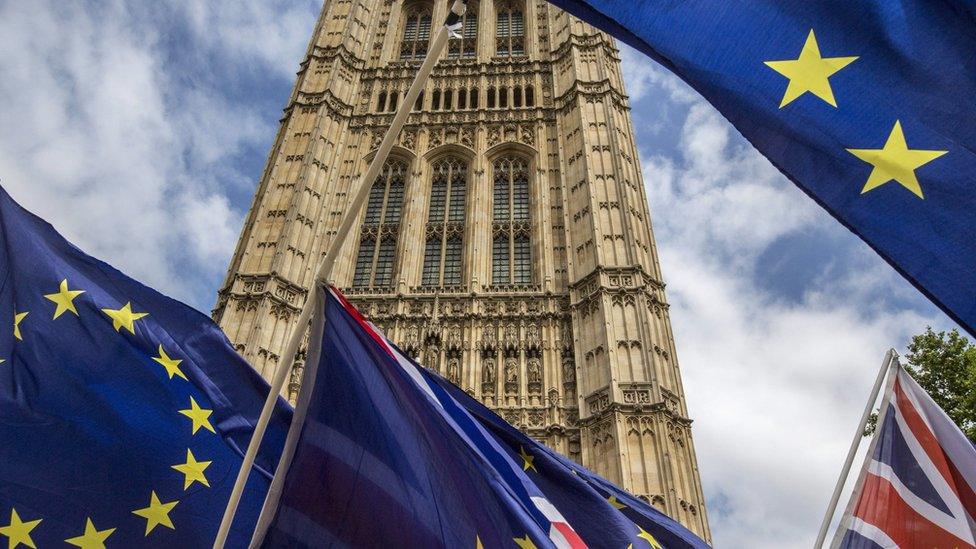
- Published30 December 2020

- Published11 December 2020

- Published9 November 2018
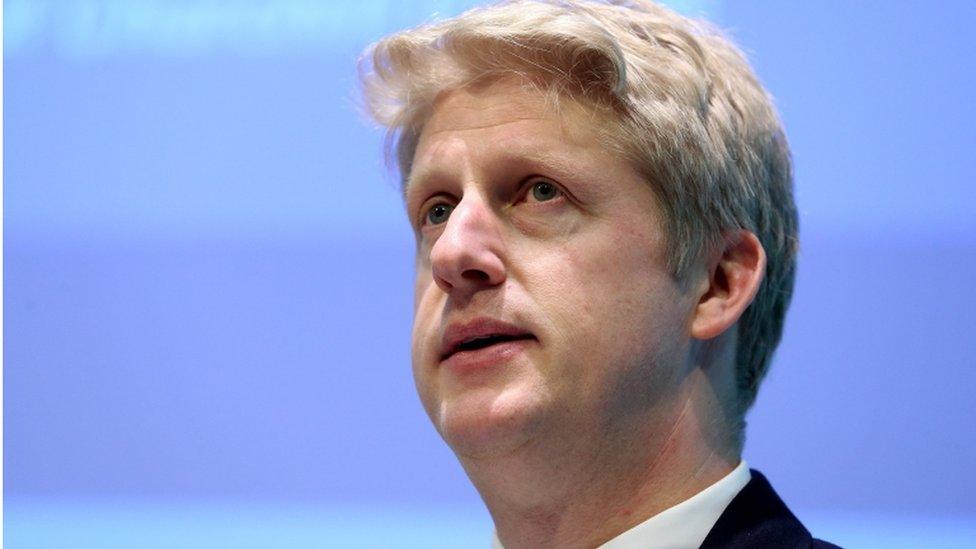
- Published7 July 2018
